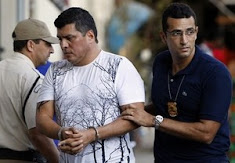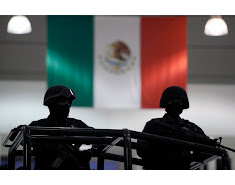Fourteen alleged members of the UVF, including one of its former leaders Mark Haddock, are due to appear at Belfast Crown Court on Tuesday for the start of the first so-called "supergrass" trial to be held in Northern Ireland for 26 years. The charges include the murder of leading UDA member Tommy English during a loyalist feud. Critics say the process being used is unsafe and unjust, while the police and prosecutors insist it is legally sound. Our Home Affairs Correspondent Vincent Kearney looks at the background to the case. The police bristle at the very mention of the word "supergrass" because of its association with a series of high profile trials in the 1980s. Hundreds of republicans and loyalists were convicted on the word of informers and suspects who agreed to give evidence against them in return for reduced sentences and new identities and lives outside Northern Ireland. There were claims that many also received financial rewards. The deals were arranged at a political level, approved by the Secretary of State, and the details were secret. No-one, not the defence teams, the relatives of victims, nor the accused, knew anything, and in many cases there were question marks over whether convicted informers actually served any time in prison at all. Credibility The trials were the largest in British criminal history. In one in 1983, 22 IRA members were given jail terms totalling more than 4,000 years. But 18 of them had their convictions quashed three years later, and the vast majority of the others convicted in a series of similar trials were also released on appeal. The system collapsed in 1985 because of concerns about the credibility of the evidence provided by the so-called supergrasses, with members of the judiciary complaining that they were being used as political tools to implement government security policy. The police and prosecutors say the trial starting today is based on an entirely different legal foundation. The investigation has centred around the activities of the UVF in the Mount Vernon estate in north Belfast New legislation introduced in 2005, the Serious Organised Crime and Police Act, enables an accused to enter into a written agreement indicating that they will help the prosecution by giving evidence against other criminals. Where this happens, the court may take this into account when passing sentence. The journey that led to the trial beginning today began with an investigation by the former Police Ombudsman Nuala O'Loan into the activities of the UVF in Mount Vernon in north Belfast. In January 2007, she published the results of Operation Ballast. 'Impunity' It was a highly critical report which said members of RUC Special Branch had allowed UVF informers to act with impunity, and that the gang may have been involved in up to 15 murders. Mark Haddock wasn't named in the report, but was referred to as Informant 1. Alarmed by the findings, the then Chief Constable, Sir Hugh Orde, asked the Historical Enquiries Team (HET) to take over Operation Ballast. Then, in 2008, two brothers, Robert and David Stewart walked into Antrim police station, admitting that they were members of the UVF, and their role in more than 70 offences. They offered to give evidence against a number of alleged former comrades under the teams of the 2005 legislation. The HET then spent more than a year debriefing them, and arresting suspects as they went along. But, despite being given additional funding, the investigation became too big for the team to handle. In December 2009, the case was given over to the PSNI. The investigation is now led by Crime Operations Department headed by Assistant Chief Constable Drew Harris, and is now called Operation Stafford. As a result, just over four and a half years after Nuala O'Loan published her report, Mark Haddock and 13 others will appear in court on Tuesday. They will appear before a judge sitting without a jury because of fears of intimidation. Haddock and eight others are charged with the murder of Tommy English and a range of other offences. The remaining five face a range of charges, possession of firearms, kidnap and assault. The latest investigation into the Mount Vernon UVF began following a report by the former Police Ombudsman, Nuala O'Loan Sealed containers The two chief prosecution witnesses, the Stewart brothers, have been held in isolation at Maghaberry prison, protected by a team of highly trained guards. Their food is brought into the prison in sealed containers to ensure they are not poisoned. They have admitted a total of 74 offences, but were sentenced to just three years each because the judge took into account their offer to testify. Their sentence was determined in open court, not secretly by the Secretary of State. The 2005 legislation contains penalties. If it emerges that the assisting offender is guilty of serious crimes they may not have admitted to, they are in breach of the agreement. If this is discovered after the trial, they can be re-arrested and charged with the additional offences. If they tell the truth but re-offend at a later stage, they can be re-arrested and charged. Supporters say this system is much more open and transparent than the discredited system used in the 1980s. Those on trial, and their families and supporters, insist that only the name has changed.
Costa del Sol-based British expat chef dishes dirt on cooking for the likes
of the Queen, Michael Jackson and Frank Sinatra - Olive Press News Spain
-
Costa del Sol-based British expat chef dishes dirt on cooking for the likes
of the Queen, Michael Jackson and Frank Sinatra - Olive Press News Spain:
'v...













0 comments:
Post a Comment